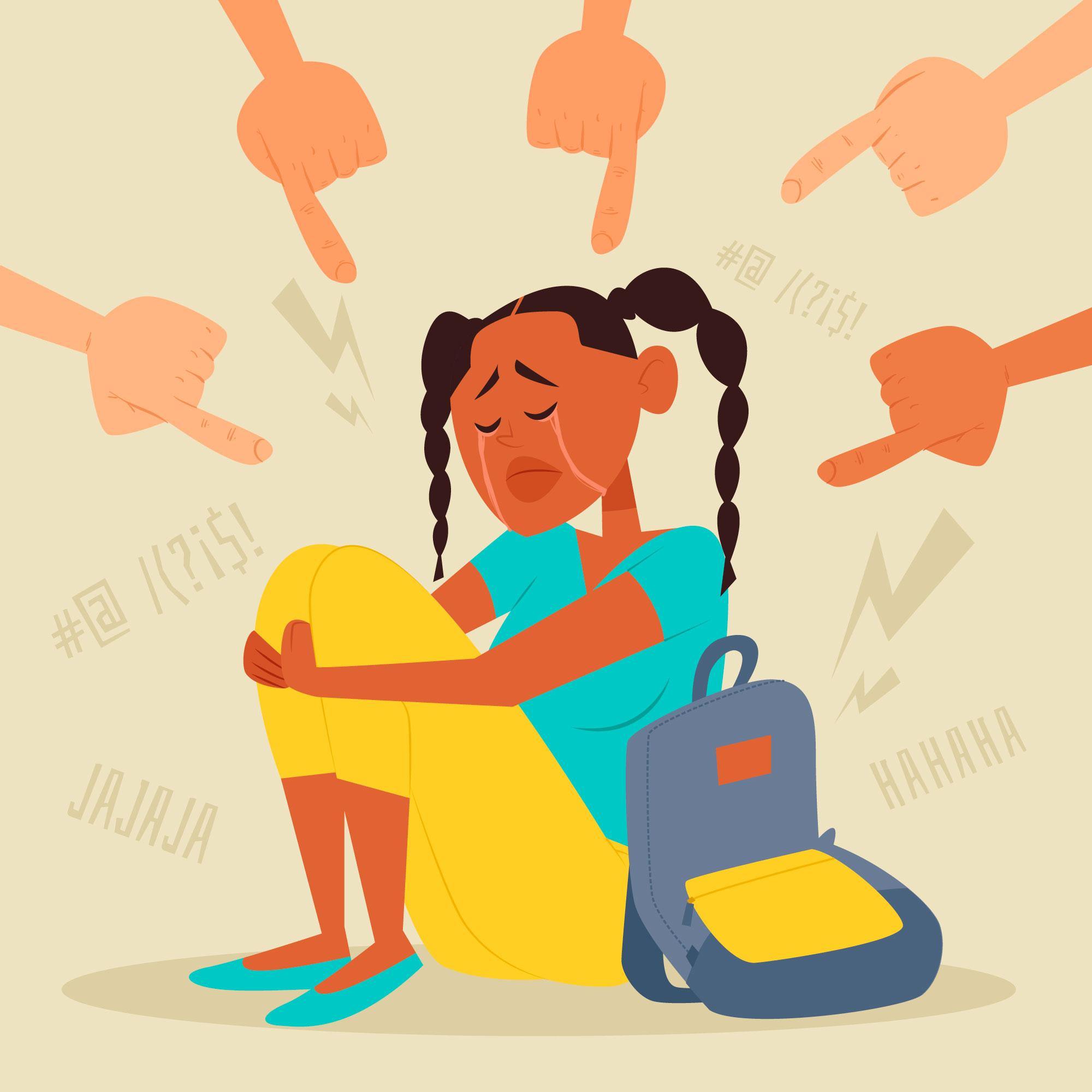What is bullying?
Bullying is the usage of force or threat to intermediate or aggressively dominate others. A bully is a person who usually uses his/her power or strength to frighten others. They usually use their strength over people who are physically weak or younger than them.
What causes children to bully?
Well, studies show some known facts which need to be focused upon by everyone.
As we all know teenage is the most sensitive age wherein children under go various physical and psychological changes. Simultaneously, parental indulgence in their privacy can cause anger issues, which leads to anxiety and irritation. In this vulnerable age, teenagers face lot of peer pressure to prove their worth. This can become the major factor contributing to bullying.
Next, we can see popularity and boasting social status amongst teenagers which gives way to power and it leads to some side effects like spreading rumours and gossips. According to the law of human nature, it’s natural to show power on the weak.
Now-a-days, lack of empathy has also become a wider issue. As the word empathy means putting oneself into other’s shoes. It lacks in every one in today's time as everyone is so busy keeping up themselves that they never feel the need to understand others. Some children may even enjoy bullying and making offensive jokes as they lack empathy. They simply don’t understand how it hurts and one can sink into depression. That is why, it is important to take care of emotional development in our children.
Lack of attention is another factor in children. They need love and attention from adults. They feel the need to be cared for. When a child becomes ‘invisible’, it may lead to the development of aggression, including bullying others.
As parents we cannot completely control what difficulties our children will face in the world, but we can exert some influence over the path they take and how they will respond to the people and events they encounter. When it comes to peer bullying, parents can help in several ways. To maximize the chance, they can avoid bullying situations. Many children and young people can find it easier to talk to their peers first, before they talk to their family members or professionals. We can nurture children’s emotional and interpersonal skills, and support their positive peer relationships. If bullying does happen, we can stand up for their protection and insist on swift action on the part of the responsible adults.
Some ways to reduce bullying:
- Nurture kids with positive attitude: Make a friendly environment at home. Try to understand your child and offer him/her feasible solutions, so that they never lie or find the wrong people to share their feelings with.
- Use an authoritative parenting style: An authoritative style of parenting offers a high degree of warmth, love, and closeness, and at the same time provides clear limits and high expectations with the support necessary to meet those expectations.
- Teach emotional and interpersonal skills: Research suggests that children who grow up in an emotion-rich language environment—where parents talk about feelings and how feelings are managed in themselves and others—have higher emotional intelligence, navigate peer groups better, and are more likely to stand up for people who are targeted by others.
Establishing good communication should start well before the kids can have having bullying problems. Develop and prepare a toolkit of ideas for kids to use in tough situations when it can be hard for them to think straight.









.jpg)


.jpg)






